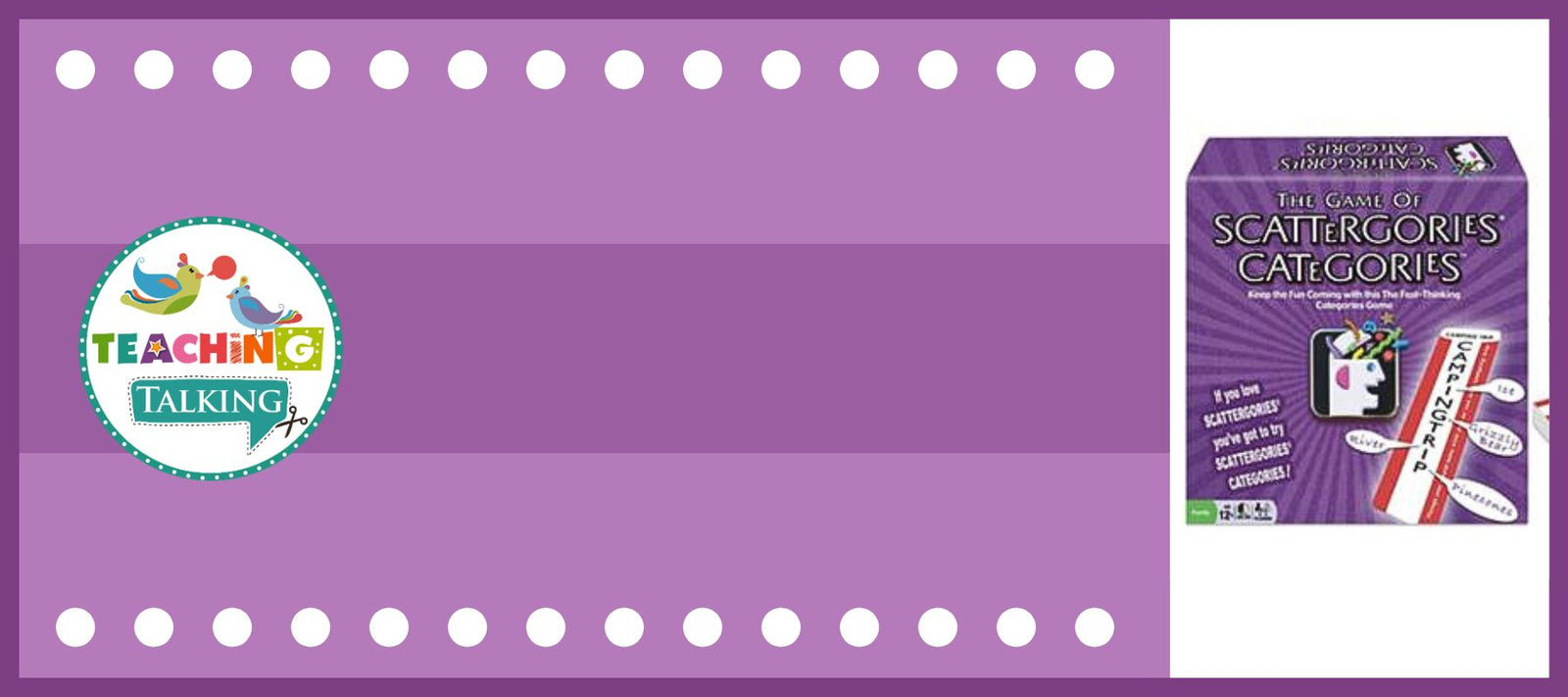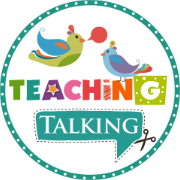
Scattergories Categories for Speech Therapy
November 06, 2021 3 min read
Why Should I Try Scattergories Categories for Speech Therapy?

Number of Players: 2 +
Ages: 8+
Target: Fantastic fun for vocabulary development. Playing by the rules also develops
Literacy skills but can be adapted for younger players.
So I was thrilled to see that the original Scattegories game has been brought up to date with a new twist. In this new version, called Scattergories Categories, instead of being restricted to naming items beginning with just one letter, you are given a range of letters and must find one word for each letter. I find this version much more versatile.
You are far less likely to find a letter and category combination that your kids can’t play, and if you do, then you just move on to the next one rather than enduring a painfully long minute with no ideas!
Using the Scattergories Categories Game in Speech Therapy
Vocabulary Development and Naming
Whether you choose to play by the rules or just use the cards for inspiration, naming items and objects in specific categories is great for developing vocabulary beyond the obvious.
This game can be adapted for one-on-one work, and you can introduce new rules to allow mixed-level group play.
I often play by giving clues when I know kids will find it hard. That way, they don’t get stuck but still have to do plenty of thinking. So for example, if they had the category “things you might pick up as you go out the door,” then I would say, “What if you were going out the door to school? What would you need?” “What is the weather like? What should you take so you stay dry?”
The clue you give will depend on how much help they need. Give enough so they succeed and enjoy the play, but not so much that there is no need to think for themselves.
Phonics and Spelling
I usually play my own adapted version of Scattergories, and so don’t often use the element where the player rolls a dice and must name according to the letter they roll. For kids who struggle to name three items in a category, restricting them to only one letter of the alphabet would often mean they couldn’t name any.
However, for children who have developed a good level of competency at the naming element of the game, restricting the first letter is a great way to get them thinking.
Especially in this new version, where each category is accompanied by multiple letters, it is great practice at alliteration to have them name a word with the correct beginning sound.
Now you know all there is to know about using the Scattergories Categories game for Speech Therapy – are you ready to play? Have fun!
Subscribe
Sign up to get the latest on sales, new releases and more …
